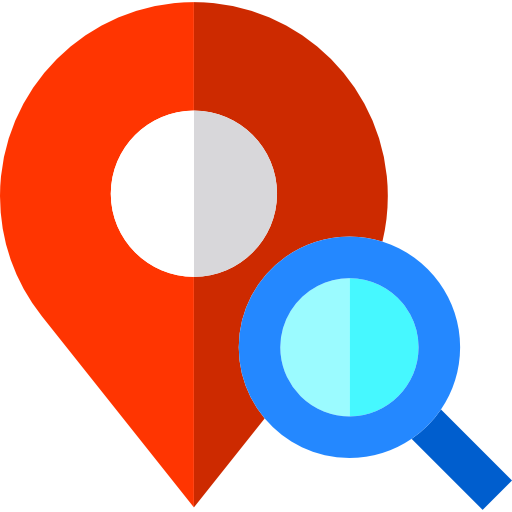Data Science Interview Tips
..

A career in data science can be incredibly rewarding and is in high demand in various industries. Here's an overview of what a data science career entails and wonderful tips for its interview.
Data science is an interdisciplinary field that involves extracting insights and knowledge from data using various techniques, algorithms, and tools. It combines aspects of statistics, computer science, domain expertise, and business acumen to solve complex problems and make informed decisions.
Data Scientist: Data scientists work with large and complex datasets to identify patterns, build predictive models, and extract meaningful insights. They often use machine learning techniques to develop algorithms for solving specific business problems.
Machine Learning Engineer: These professionals focus on developing and deploying machine learning models and algorithms. They work on optimizing models for performance, scalability, and efficiency.
Data Analyst: Data analysts concentrate on analyzing data to identify trends, patterns, and correlations. They create visualizations and reports to communicate findings to non-technical stakeholders.
Business Analyst: Business analysts use data to provide insights that inform business strategy and decision-making. They often bridge the gap between technical data scientists and business stakeholders.
Data Engineer: Data engineers build and manage the infrastructure that allows data to be collected, stored, and accessed efficiently. They design pipelines for data ingestion, transformation, and storage.
AI Research Scientist: These professionals are focused on advancing the field of artificial intelligence and machine learning through research. They often work in academia, research institutions, or cutting-edge technology companies.
Tips for Data Science Interview
Understand the Role and Company: Research the company and the specific role you're interviewing for. Understand the company's industry, products, services, and any recent developments. Tailor your answers to showcase how your skills align with their needs.
Review Fundamentals: Brush up on core concepts of data science such as statistics, linear algebra, and probability. Make sure you can explain these concepts clearly, as they might be the foundation of technical questions.
Practice Coding: Be ready to write code during the interview. Review coding languages like Python or R, and practice solving data manipulation and analysis problems. Websites like LeetCode, HackerRank, and DataCamp offer practice problems for data science.
Machine Learning and Algorithms: Review common machine learning algorithms, how they work, and when to use them. Be prepared to discuss topics like supervised learning, unsupervised learning, and model evaluation metrics.
Data Manipulation: Interviewers often assess your ability to work with data. Practice cleaning, transforming, and manipulating datasets. Libraries like Pandas in Python can be very helpful for this.
Projects in Portfolio: Be ready to discuss the projects you've worked on. Highlight the problem you tackled, the approach you took, the tools and techniques you used, and the outcomes you achieved. Emphasize any real-world impact and lessons learned.
Communication Skills: Data scientists don't just crunch numbers; they need to explain their findings to non-technical stakeholders. Practice communicating complex concepts in a clear and concise manner.
Behavioral Questions: Expect questions about teamwork, problem-solving, and how you handle challenges. Use the STAR (Situation, Task, Action, Result) method to structure your responses.
Domain Knowledge: If the role is specific to a certain industry (e.g., finance, healthcare), familiarize yourself with key terms and challenges in that domain.
Ask Questions: At the end of the interview, ask thoughtful questions about the company, team, and projects. This shows your interest and helps you gauge if the company is a good fit for you.
Mock Interviews: Practice with mock interviews, either with a friend or using online platforms. This can help you get accustomed to the interview format and receive feedback.
Stay Updated: Keep up with the latest trends and developments in data science, as interviewers might ask about recent advancements.
Online Presence: Make sure your LinkedIn profile and any personal websites reflect your data science skills and experiences. Employers often check online profiles before making decisions.
Time Management: During the interview, manage your time well. If you're stuck on a problem, don't hesitate to ask clarifying questions or explain your thought process.
Stay Calm: Interviews can be nerve-wracking, but try to stay calm and focused. Taking a moment to think before answering a question is perfectly okay.
Programming Languages: Proficiency in languages like Python or R is crucial for data manipulation, analysis, and machine learning.
Statistics and Mathematics: A strong foundation in statistics, linear algebra, and calculus is essential for understanding and developing data models.
Machine Learning: Knowledge of various machine learning algorithms, techniques, and libraries is vital for building predictive models.
Data Manipulation: Skills in cleaning, transforming, and preprocessing data using tools like Pandas or SQL.
Domain Expertise: Understanding the industry you work in is valuable for making contextually relevant decisions.
Communication: The ability to explain complex technical concepts to non-technical stakeholders is crucial.
Education and Learning Path:
A bachelor's degree in computer science, statistics, mathematics, or a related field is a common starting point.
Many professionals pursue advanced degrees like a Master's or Ph.D. for more specialized roles or to stand out in a competitive job market.
Continuous learning is essential due to the rapidly evolving nature of technology and data science.
Job Outlook:
The demand for data scientists continues to grow across industries such as finance, healthcare, e-commerce, technology, and more. Organizations are increasingly relying on data to drive their decision-making processes, creating a consistent need for skilled data professionals.
Salary:
Data science salaries can vary widely based on factors such as experience, location, company size, and job responsibilities. However, data science roles are generally well-compensated due to their specialized skills and the value they bring to businesses.
a data science career offers a blend of technical expertise, analytical thinking, and problem-solving. It's a dynamic field with ample opportunities for growth and impact. If you're interested in working with data, solving complex problems, and making data-driven decisions, data science could be a great career choice for you.
Remember that interviews are not just about showcasing your technical skills, but also about demonstrating your problem-solving approach, adaptability, and cultural fit with the company. Good luck!



Leave a comment